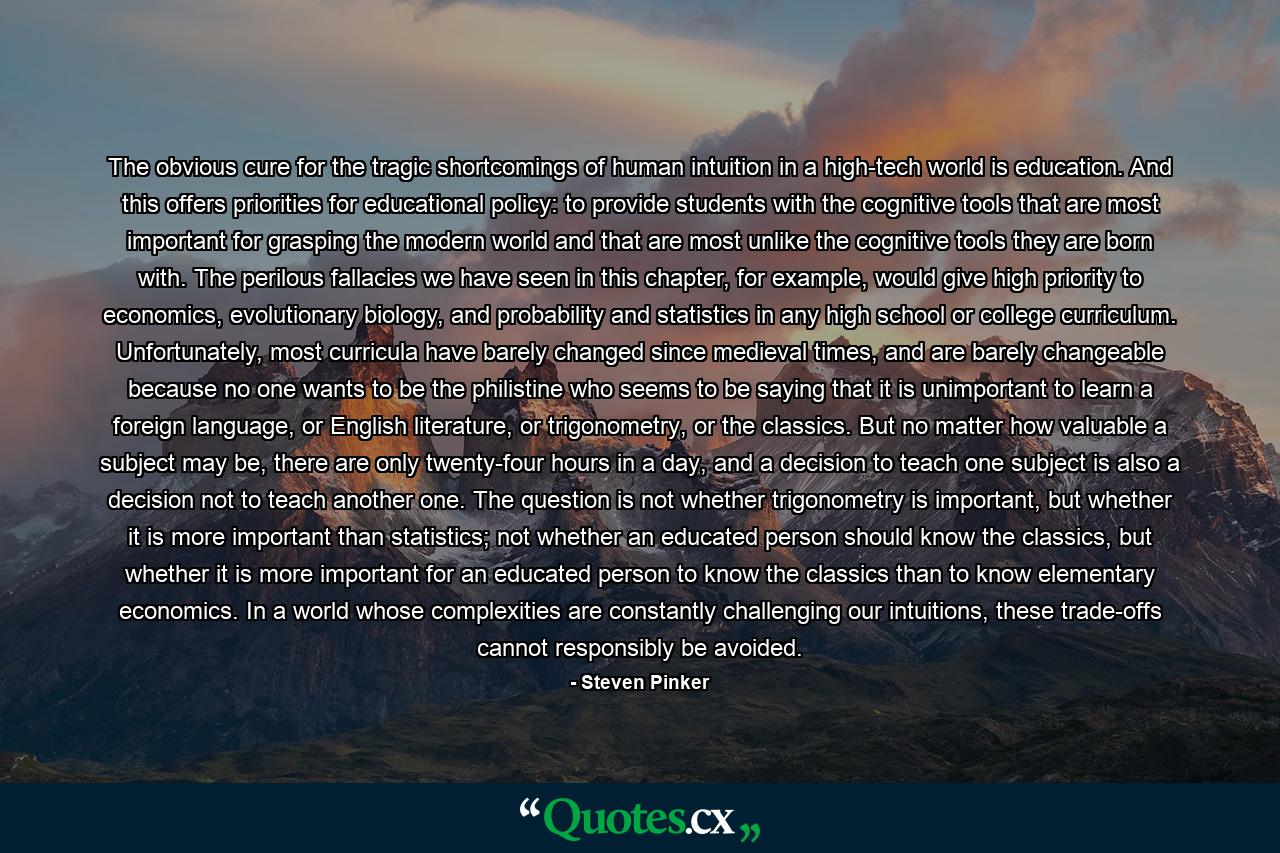The obvious cure for the tragic shortcomings of human intuition in a high-tech world is education. And this offers priorities for educational policy: to provide students with the cognitive tools that are most important for grasping the modern world and that are most unlike the cognitive tools they are born with. The perilous fallacies we have seen in this chapter, for example, would give high priority to economics, evolutionary biology, and probability and statistics in any high school or college curriculum. Unfortunately, most curricula have barely changed since medieval times, and are barely changeable because no one wants to be the philistine who seems to be saying that it is unimportant to learn a foreign language, or English literature, or trigonometry, or the classics. But no matter how valuable a subject may be, there are only twenty-four hours in a day, and a decision to teach one subject is also a decision not to teach another one. The question is not whether trigonometry is important, but whether it is more important than statistics; not whether an educated person should know the classics, but whether it is more important for an educated person to know the classics than to know elementary economics. In a world whose complexities are constantly challenging our intuitions, these trade-offs cannot responsibly be avoided.
